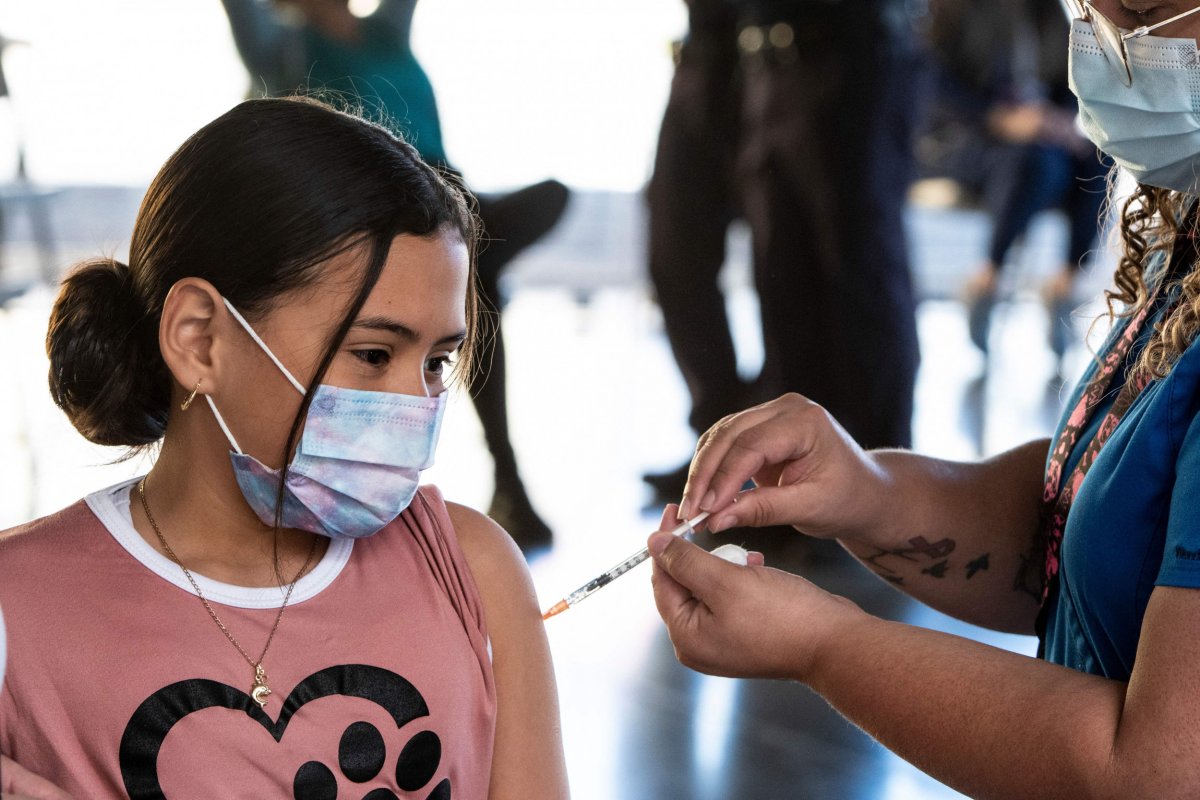More than two months after COVID-19 vaccines were approved for U.S. children ages 5 to 11, just over 17 percent are fully vaccinated.
Vaccination sets for the age group were introduced in the fall and the vaccinated numbers surged; however, since then, they have begun a slower increase rate. In Vermont, 48 percent of children are fully inoculated, while California is almost to 19 percent and Mississippi is at 5 percent. In Canada, Pfizer shots were cleared for the ages of 5 to 11 in November; however, 2 percent are fully vaccinated.
Meanwhile, over 63 percent of all Americans are vaccinated and the rate of children 12 to 17 is 54 percent.
Authorities believe misinformation, complacency, suspicion, delays because of holidays, and heavy weather in December slowed the pace of the vaccine in the U.S. They also believe that Omicron is not making children or adults more seriously ill than other variants are, and authorities say hospitalization rates are up partly because it is so much more contagious.
"It's true, kids in general do better than adults with COVID," said pediatric emergency medicine physician Dr. Elizabeth Murray.
"But 'not too sick' still can mean miserable with fevers and muscle aches for a week. It can also mean MIS-C or long COVID."
Multisystem inflammatory syndrome (MIS-C) is a rare but serious condition linked to COVID-19. MIS-C affects organs and typically requires hospitalization.
The number of hospitalizations for children under 18 with COVID-19 has climbed to the highest levels on record in the U.S. in the past few weeks. Some admitted children had underlying conditions such as diabetes, lung disease and sickle cell disease, which doctors say have worsened due to an Omicron infection.
Kendra Shaw, a Chicago mother, has a 10-year-old daughter and a soon-to-be 7-year-old son. She told the Associated Press both of her children asked to get vaccinated, and she scheduled their first doses for Wednesday.
A Denver father, Daniel Kotzin, has a 5-year-old daughter and a 7-year-old son. He told the Associated Press he decided not to vaccinate his children since Omicron cases seem to be mild.
Dr. Robert Murphy, executive director for the Institute for Global Health at Northwestern University's Feinberg School of Medicine, said the low rates are "very disturbing."
"It's just amazing," he told the Associated Press. Parents who hesitate "are taking an enormous risk and continuing to fuel the pandemic."

Dr. Jesse Hackell, a pediatrician in Pomona, New York, said that at least 25 percent of his patients ages 5 to 11 are vaccinated, but that after an initial rush in the fall, the numbers have dwindled.
"It's a tough sell,'' he said. "We're not ready" is a common comment, Hackell said. "When I ask, 'What are you waiting for?' I get kind of a shrug. I've had a few say, 'We're not going to be the first million. We'll wait to see what happens."'
A frustrated Hackell said the government's vaccination campaign is clearly struggling against misinformation and "pseudoscience," the likes of which he has never seen before in his 40-plus years as a pediatrician.
He said the government needs to get tough and mandate the shots.
"If we could get every kid vaccinated across the board, it would go a long way. It wouldn't end the pandemic, but it would end the severe disease,'' Hackell said. "It could help turn the virus into nothing more serious than the common cold, and we can deal with that.''
The Associated Press contributed to this report.

Uncommon Knowledge
Newsweek is committed to challenging conventional wisdom and finding connections in the search for common ground.
Newsweek is committed to challenging conventional wisdom and finding connections in the search for common ground.
About the writer
To read how Newsweek uses AI as a newsroom tool, Click here.








